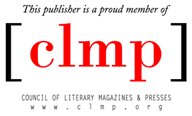Selected Chapbooks
Something Must Happen by Ned Balbo
With exceptions all too rare, the pages of Ned Balbo's Something Must Happen simply lack the quiddity of poetry. As Dana Gioia notes in the book's back matter, Balbo is not lacking in "formal dexterity." Rather, his poems languish in a sense of safety and fail to take the risks that—in more successful verse—elevate the mere objects of perception to something more than themselves.
Poems such as "Aerial Views of Levittown" are so clinical and taxed by plainly rendered historical fact that they give the appearance of poorly lineated prose:
The second snapshot holds what soon would follow:
curvilinear drives and cul-de-sacs
close to the parkways Robert Moses carved
through Nassau County to the wilderness of Hauppauge and Great River...Admittedly, Balbo recovers slightly in the last line of "Aerial Views," but the effort is far too little and much too late for a piece that rolls on for forty lines. If there's Biblical import to the poem's dry style and length, it's not particularly apparent.
Balbo makes extended use of the photograph-meditation approach of "Aerial Views" in a series of nonce-form poems entitled "Times Square Post Cards." These pieces do spark a bit more brightly than does "Ariel Views," but ultimately they fail to become more than a collective study in ekphrasis. Simply put, there's little to justify their being poetry at all.
Something Must Happen is not the product of a bad poet, but the work is detrimentally safe. Balbo would do well to reach beyond the self-imposed confines of the collection's plodding style. In fact, the occasional moments of insight and wit in Something Must Happen suggest that there is better poetry to be had from Ned Balbo.
Dissonance by Maryann Corbett
Recently released by Scienter Press, Maryann Corbett's Dissonance is a decidedly accomplished chapbook comprised entirely of formal, metrical verse. The collection is remarkable not only for the high quality of its individual poems, but also for its cohesiveness—a sort of internal logic stemming from the gravitas that pervades the work.
As its title suggests, Dissonance is not unlike a series of musical movements, dinted as it were by harsh chords—struck tactfully, of course.
In the collection's eponymous poem, Corbett presents—in a major key, if you will—a playful scene from a Goodwill store that falls quickly into discord:
...the mirth for both of us
seemed sincere
so I joked, where others
could overhear,
about our finds
in the plaids and prints
and saw you wince.The poems found in this chapbook focus on basic human foibles and urges: to cheat, encourage war, make sense of failed relationships, keep tabs on a daughter via MySpace, or covet her male friends—whatever the case may be—while carefully avoiding the temptation to provide resolution where none can be found naturally. In a sense, Corbett offers no Picardy Thirds.
Consider, for example, the stark and masterful sonnet entitled "Saturday Edition" (which we proudly printed here at The Barefoot Muse), whose reader encounters a front page where,
In mammoth type, the headlines yell the names
of prophets stoking hells of holy war.In accord with the endlessness of those issues it presents, the poem avoids neat conclusion, offering instead, "the screams of children from the other section"—a harrowing dissonance, indeed.
But surely Corbett knows that dissonance is a relative term—that in the Blakean sense, beauty and ugliness rely on contrariness for their respective quality. Thus, in "Lament for the Midnight Train," the masterful pacing and consonance—clearly the product of a medievalist's ear for such things—only seem at odds with the idea of lamentation. In reality, the graceful language gives greater purchase to the narrator's longing for a purportedly "peaceful time" that "will not come back."
Be warned that there's little unqualified sweetness in Corbett's chapbook. And while it may not please the average blue-hair, this brand of dissonance is quite welcome.
Nicholas Friedman's poetry has appeared or is forthcoming in Measure, Light Quarterly, Crannóg, Annals of Internal Medicine, Blue Unicorn, The Raintown Review, and Census. He intends to leave his hometown of Syracuse, NY in the near future.

